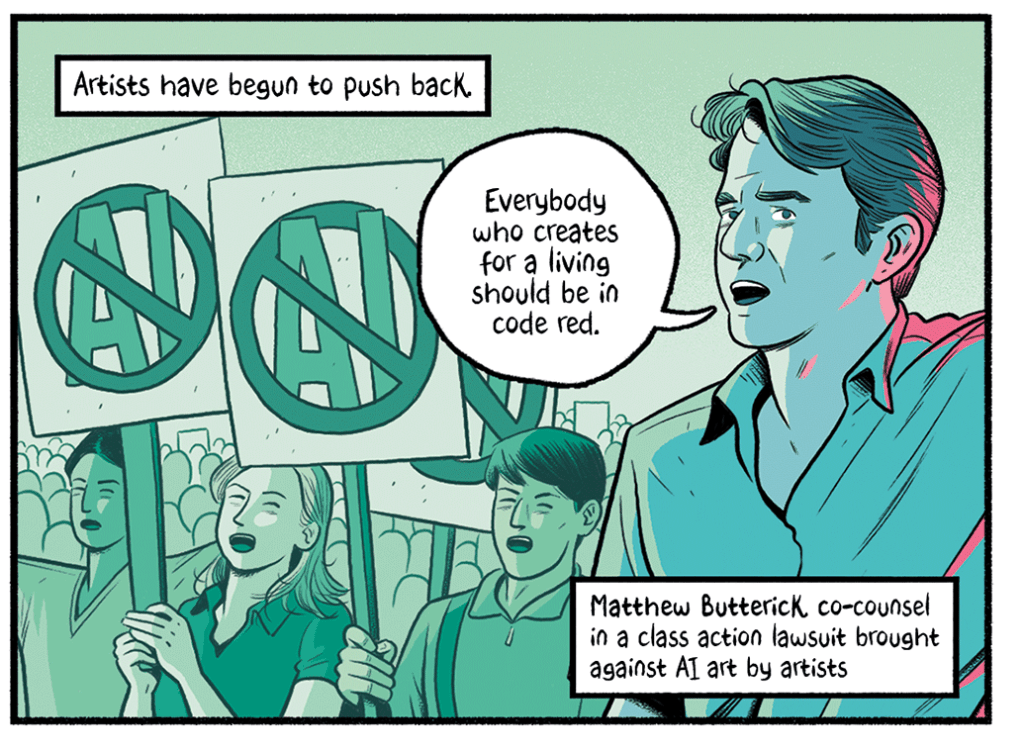One of the threads running through Oppenheimer is the question of whether or not detonating a nuclear bomb could set off an unstoppable chain reaction that would incinerate Earth’s atmosphere. Any time this is brought up, it’s stated that the math works out to show there’s a near zero chance this could happen.
Not impossible, but almost.
While the film might overstate the fear of some of the scientists and government officials (based on an article by Yuen Yiu), Oppenheimer uses it to carry along a sense of dread about what’s going to happen once the story finally reaches the point of no return and they press the big red button for the Trinity test.
Acknowledging and reminding the audience of an improbable disaster can be a tool to ratchet up tension and let people know what’s at stake. Jonathon W. Stokes highlights why its important for these high stakes moments to come as late in the story as possible, suggesting that Nuking the Fridge too early diminishes the tension in everything that comes after.
Another example of scientists bringing up the fear of disaster (but going ahead anyway): Crossing the streams in Ghostbusters.
Heidi and Devon Dion look at early script drafts and interviews to see when and how the makers of Ghostbusters decided to start warning about how crossing the streams could “end all life as we know it” before turning that into the Hail Mary option to save the day. Matthew Belinkie looks at the ethics of the decision, considering if the Ghostbusters made a rational choice to risk planetary/dimensional annihilation.
The confrontation at the end of Turning Red builds on all the previous mentions of how dangerous Mei’s mother, Ming, was in her red panda form. This build up about the dangers of not containing the panda transformation are layered in with the movies examination of generational trauma and repression. Megan the Fangirl takes a deeper look into how these threads tie together, and the importance of the family pivoting to embrace the repressed magical ability as a way to prevent destruction.
Some questions to think about if this applies to what you’re writing:
Is there something improbable, but very, very bad that could happen in your story?
Is it something that the characters try to dismiss, but can’t actually stop worrying about?
What would make the improbable become possible (or even likely)?
Are you new here?
Inneresting is a weekly newsletter about writing and things that are interesting to writers. Subscribe now to get more Inneresting things sent to your inbox.
The WGA and SAG-AFTRA Strikes Continue
Tom Humberstone illustrates the history of the Luddite movement to show how it connects to modern concerns about unchecked automation and a decline in people’s standard of living. The concerns WGA and SAG-AFTRA members have about the need to regulate the use of AI to protect the rights and employment of humans don’t stop with the film and television industry.
We want to remind you of ways you can participate and support the effort to create a fair contract protecting the future of writing as a profession!
If you are interested and able, join a picket line and show your support. The Writers Guild also has a list of other ways to help.

Increase the probability you’ll get words on the page
Each week we post a comment thread for writers to meet up, cheer each other on, and put some words on the page with a Write Sprint.
What’s a Write Sprint?
John wrote up an explanation, but here’s the short version: Set a timer for 60 minutes, close down all distractions, and do nothing but write until that timer goes off.
Shout out to last week’s Sprinters Mark Leiren-Young, Brian Matusz, Genie Leslie, Elyse Moretti Forbes, and Aimee Link!
Rock Me Amadeus!
This week’s Featured Friday might play a little with the facts, but that’s why these stories are called historical fiction. Open up Weekend Read and check out scripts for Dunkirk, Gladiator, Titanic, Amadeus, and more!
Whether you unlocked the Pro version or downloaded it for free, you can check out these pilot scripts and add them to your library.
Weekend Read 2 fits screenplays perfectly on your iPhone or iPad. No more squint, pinch & zoom when trying to read on the go.
See for yourself—Download Weekend Read 2 from the App Store!
Previously on Inneresting…
In case you missed it, in last issue’s most clicked link
Reading the room



And that’s what’s inneresting this week!
Inneresting is edited by Chris Csont, with contributions from readers like you and the entire Quote-Unquote team.
Are you enjoying this newsletter?
📧 Forward it to a friend and suggest they check it out.
🔗 Share a link to this post on social media.
🗣 Have ideas for future topics (or just want to say hello)? Reach out to Chris via email at inneresting@johnaugust.com, Mastodon @ccsont@mastodon.art, Bluesky @ccsont.bsky.social, or Threads @ccsont@threads.net







